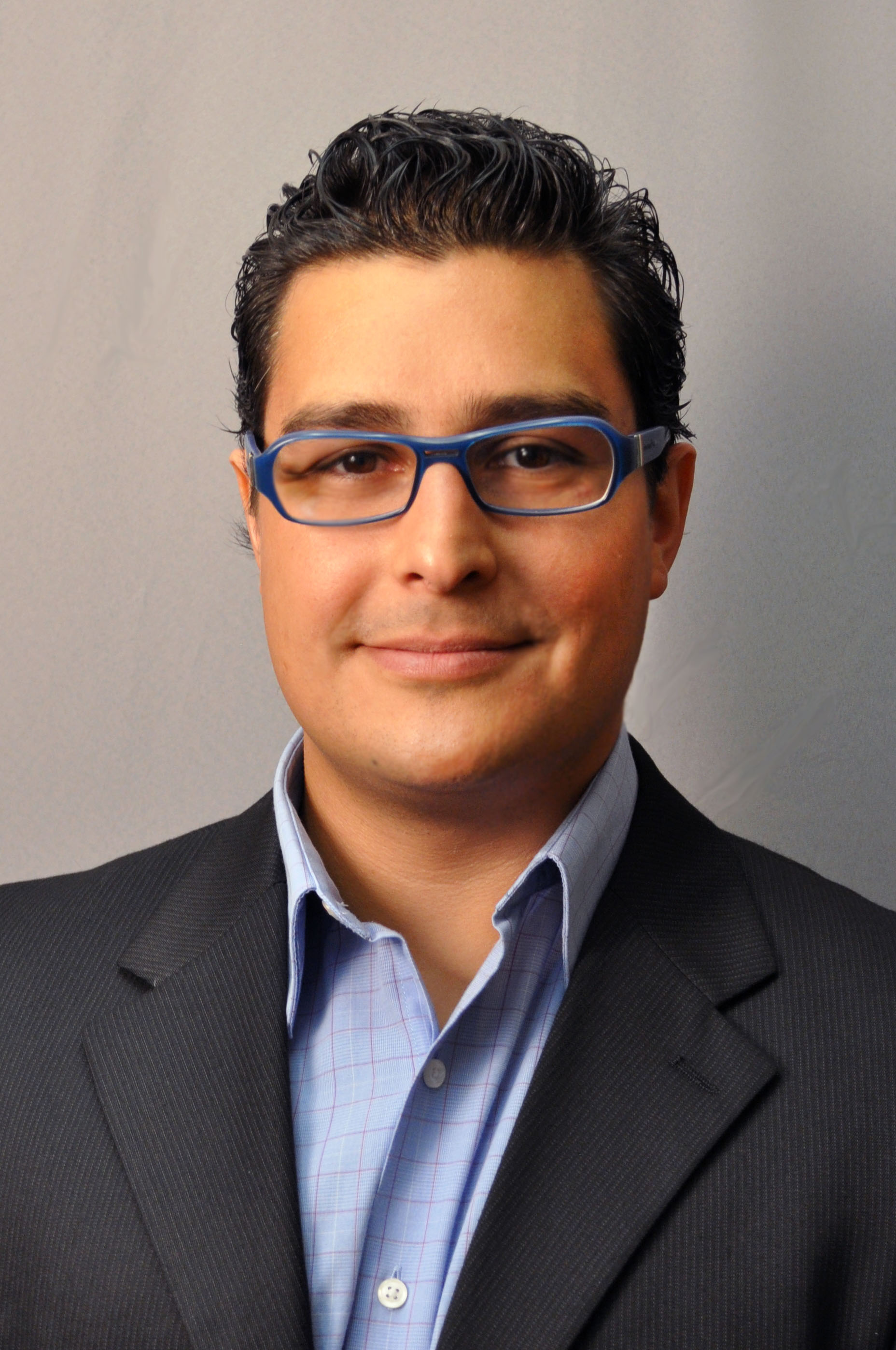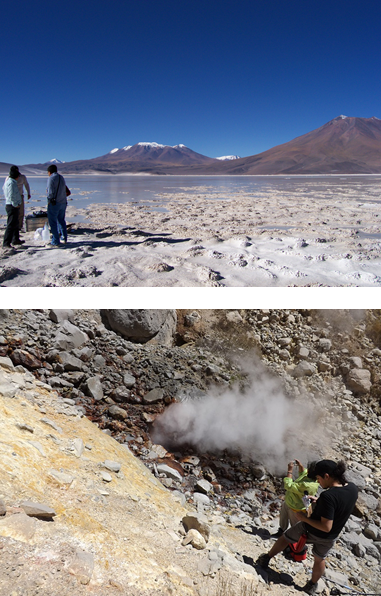Collaborating with the University of Georgia to Develop Extremophilic Enzymes
An increasing number of universities are now operating business incubators, programs which help nurture and grow early-stage companies affiliated with the institution. According to the International Business Innovation Association, there are now more than 1,250 business incubators in the United States and more than 7,000 worldwide. As of 2012, about one-third of the U.S. incubators were at universities, up from one-fifth in 2006.
One of Kerafast’s partner companies, Swissaustral, is collaborating with the incubator at one of our providing institutions, the University of Georgia (UGA), to help grow their company’s presence in the United States. We recently took the opportunity to speak with Felipe Sarmiento, PhD, Business Innovation Director of Swissaustral USA, to learn more about how early-stage biotech companies are partnering with universities. We also caught up with Dr. Sarmiento on the latest Swissaustral products available on the Kerafast platform.

Kerafast partner Swissaustral discovers, develops and produces enzymes and other bio-molecules from extremophilic microorganisms – those that live in extreme environments such as deserts, acid or alkaline pools, Olympic flats or glaciers. These extremophilic enzymes retain optimal function even under extreme conditions of temperature, pH and/or salinity, making them useful for a variety of industrial and research applications.
Founded in Chile in 2006, Swissaustral expanded to Europe in 2009 and to North America in 2012. To develop its North American market, the company joined UGA’s Innovation Gateway incubator, which helps accelerate the growth of UGA-based technologies and companies by providing workspace and support services, including business mentoring and various educational and networking opportunities.
Since then, Swissaustral has begun collaborating with several other UGA facilities and programs, including the Georgia Genomics Facility, the Bioexpression and Fermentation Facility, and the Master of Biomanufacturing and Bioprocessing program. The company is also starting to work with UGA professors on writing grant proposals.
As the company grows, Swissaustral has made several products available on the Kerafast platform:
- Recombinant Microbial Catalase: an oxidoreductase that catalyzes the decomposition of hydrogen peroxide into oxygen and water. Derived from psychrotolerant (cold-adapted) bacteria and produced recombinantly, this catalase effectively maintains its activity over a wide range of temperatures. Check out this blog post to learn more about the catalase.
- Violacein: a natural purple pigment, found in microorganisms living in unique environments, that acts as a natural defense system and has been demonstrated to have antimicrobial, antiparasitic and antitumoral activities. This violacein was isolated from a non-pathogenic, psychrotolerant microorganism and is highly pure and stable.
We spoke with Felipe Sarmiento, PhD, Business Innovation Director of Swissaustral USA, to learn more about the company’s collaboration with UGA, as well as its plans for the future. Dr. Sarmiento also shared his advice for other early-stage biotech companies considering partnering with an academic institution. Read on below for his interview.
- Why did Swissaustral join the UGA Innovation Gateway Incubator? What have been the benefits of working with this program?
The University of Georgia is an important academic institution in the study of extremophiles; thus, joining the UGA Innovation Gateway gives us an open door to hot research in our area of expertise, allowing us to stay informed of the latest advances. It also give us the opportunity to work closely and develop grant proposals with experts in extremophiles and other areas like engineering and molecular biology.
In addition, when we joined in 2013, the UGA Innovation Gateway gave us advice and the necessary tools to start our endeavor in United States. Now the incubator is growing and improving towards becoming an even better location for start-up and early-stage companies, offering a wider range of opportunities. We feel very welcome, and we think that we made the right decision joining the UGA Innovation Gateway.
Finally, Dr. Jenny Blamey, founder and CSO of Swissaustral, and I got our PhDs from the University of Georgia, so we have a special connection to UGA. Go Dawgs!
- We know you have begun to work with UGA professors to write grant proposals. Could you please describe your objectives and what the process has been like?
The objective of working with academic experts in specific areas is to increase our own capabilities and use the knowledge that professors at UGA have toward developing novel commercial solutions. Also, if we can, we are more than glad to help academics develop their research further. The process usually starts with an idea which we develop over several meetings. In parallel, we look for potential grant sources to finance the projects. It is a straightforward process, but it can take several months to set up. So far we have had an excellent relationship with UGA academics and its Office of Technology Transfer.
- Please describe the others ways in which you’re working with UGA.
We use several services that the University provides. For example, we work with the Georgia Genomics Facility (GGF) for all our sequencing needs and with the Bioexpression and Fermentation Facility (BFF) for small- and medium-size fermentation, and downstream processing. Also, we collaborate with UGA’s Master of Biomanufacturing and Bioprocessing (MBB) program by giving lectures and by working with students and interns. This relationship is very beneficial not only for us, but for the students who learn new techniques and the philosophy behind small companies.
- What would you say to an early-stage biotech company about collaborating with a university? Do you have any advice to share?
The main advice would be to study the university and learn the services and programs that they have available. Once you understand the full range of possibilities, use them; they are extremely valuable. Institutions as big as universities always have opportunities available for expanding your capabilities, for networking and for collaborations. To fully explore all these tools, get involved with selected programs at the university and participate in their different events. Also, it is very rewarding to teach your experience, and influence and encourage young minds to follow in your footsteps.
- Let’s talk about Swissaustral for a bit. How does the company discover and develop extremophilic enzymes?
 On the hunt for extremophilic microorganisms
On the hunt for extremophilic microorganisms
The first step is to visit extreme environments such as desserts, acid or alkaline pools, Olympic flats or glaciers, from where we isolate extremophilic microorganisms. Thanks to many different expeditions and our expertise in extremophilic microbiology, we have built a proprietary collection of unique extremophilic microorganisms that represent the innovation core of our company.
To successfully discover enzymes from extremophiles, at Swissaustral we screen extremophilic cultures through a functional approach, where we search directly for the desired activity of the enzyme of interest, under customized conditions. Our core competence in biochemistry and enzymology drives the “hunt down” of the right enzyme for a specific application, with the desired characteristics in terms of stability, activity, pH, temperature, and in many cases substrate specificity.
The functional approach is complemented with genetic and genomic tools to identify the specific gene encoding the enzyme of interest. We further develop the enzymes that we discover by cloning the gene in a suitable host and expressing the recombinant enzyme for scale up and production. Our team of engineers is able to optimize the expression conditions in order to obtain high yields of active recombinant enzyme and keep the relevant characteristics of the native version.
- We hear Swissaustral has been developing a new extremophilic enzyme that will soon become available to the research community. Can you give us the inside scoop?
We are planning to launch our microbial recombinant glutamate dehydrogenase (GDH) in the next two months. It is an enzyme that catalyzes the reversible conversion of glutamate to α-ketoglutarate. This enzyme is used in diagnostic kits to confirm liver and kidney diseases in humans and animals by detecting abnormal levels of ammonia and urea. Also, it is used in the food industry for detection of spoiled meat, wine and other foods.
We have developed a novel high-performance GDH purified from a thermophilic microorganism with several interesting properties. As a recombinant, microbial-origin enzyme, its production is fast, sustainable and free from any animal- or plant-related contamination. The thermophilic enzyme has optimal activity at 50⁰C and maintains over 55% of its activity in a broad range of temperatures (from 30⁰C to 70⁰C). Also, it has a high thermal stability; at 50⁰C this enzyme keeps over 90% of its activity for eight hours. It’s a robust and ideal candidate for research use, diagnostics and quality control in the food industry.
[Editor’s note: If you would like to be alerted when GDH becomes available, please contact CustomerService@kerafast.com]
- What does the future hold for Swissaustral? How do you see the company growing and changing over the next few years? Will you continue to collaborate with UGA?
We have two objectives in mind. First of all, we want to keep bringing novel extremophilic enzymes to market to expand our current catalogue. Indeed, we have at least five other enzymes in our pipeline at different development stages. The second objective is to expand our capabilities to reach industrial markets. In addition to being excellent research tools for common lab work, our enzymes are designed to solve industrial problems, and we are working to implement novel recombinant expression systems and broaden our internal capabilities for production. We are also looking for collaborations to mass-produce our enzymes at industrial quantities. We will keep working with UGA; we are happy with the results of our current alliances, and we hope to keep exploring new opportunities.



